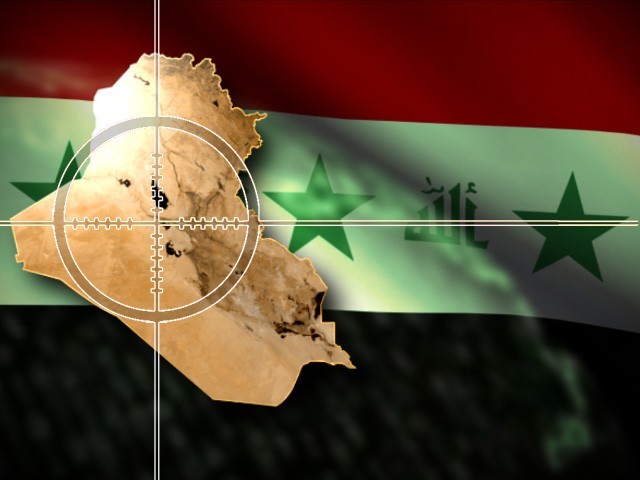BAGHDAD - An Iraqi soldier allegedly shot dead two American troops while they were patrolling together north of the capital, the U.S. military and an Iraqi official said Saturday. The Iraqi official said the suspect has links to militant groups.
Three other U.S. soldiers and a civilian interpreter were wounded in the Dec. 26 attack, the military said in a statement. The shooting occurred as American and Iraqi soldiers were trying to establish a combat outpost in Ninevah province in northern Iraq.
According to Brig. Mutaa Habib Jassim al-Khazrachi, commander of the Iraqi army's 2nd Division, an initial investigation has indicated that the Iraqi soldier has links to local militant groups.
Al-Khazrachi said the shooting occurred in eastern Mosul as American and Iraqi troops were in a firefight with gunmen.
The Iraqi soldier who allegedly opened fire fled but was identified by other Iraqi army personnel and captured, the military said. Two Iraqi soldiers are being held in connection with the shooting, the statement said.
The U.S. military identified the two Americans killed as Capt. Rowdy Inman and Sgt. Benjamin Portell, both assigned to the 3rd Squadron, 3rd Armored Cavalry Regiment.
Portell, 27, was from Bakersfield, Calif., and Inman, 38, was from Panorama Village, Texas. Both were stationed at Fort Hood in Texas.
U.S. and Iraqi investigations are under way, the military said.
Prime Minister Nouri al-Maliki, meanwhile, offered his strongest public support to date for U.S.-backed Sunni Arab groups that have joined the fight against al-Qaida, promising to integrate a "large number" of them in the security forces.
The comments, in an interview published Saturday in the London-based Arabic daily Asharq al-Awsat, came as the Shiite prime minister returned to Iraq after spending a week in London for what his office had described as a routine medical checkup.
In the interview, al-Maliki said: "A large number of them (Sunni groups) will be integrated by the police and army according to health, age, academic qualifications and criminal and security records." He gave no details, but his government has said only 20,000 members of Sunni militias will be absorbed in security forces.
"They contributed to security and we will continue to support them in this respect."
Al-Maliki dismissed as "deliberate distortions" reports that his government was opposed to the Sunni groups, but added that he wanted to protect them against infiltration.
No official information has been released about the medical checks he underwent in London. But one of his advisers, speaking on condition of anonymity, said he traveled to Britain after falling ill, but that the checkup revealed no problems.
"I am in good health. I will resume work directly," al-Maliki told reporters at the airport. "We will proceed with our process of rebuilding."
At the time of his departure on Dec. 29, an adviser to al-Maliki, Yassin Majeed, had said the prime minister had delayed a previous trip because the "security situation did not allow it."
On Saturday, a roadside bomb struck a passing minibus north of the town of Muqdadiyah, about 56 miles north of Baghdad, killing six people, said an official in the joint coordination center of Diyala province - which remains one of Iraq's most violent areas. The official spoke on condition of anonymity because he was not authorized to speak to the media.
In the province's capital, Baqouba, 35 miles northeast of Baghdad, another roadside bomb wounded three civilians, police said.
The city has seen several attacks recently, and on Friday a one-day vehicle ban was imposed on the city because of "increased violent events during last week," said Baqouba police chief Brigadier Hasan al-Obaidi. The ban also was aimed at protecting worshippers going to mosques for Friday prayers.
Despite continuing daily attacks across the country, violence has fallen significantly in the country - by 60 percent since June, the U.S. military says.
One indication of the improvement in security was the reopening of the Samarra dam bridge, one of the entrances into the city some 60 miles north of Baghdad, on Thursday, the U.S. military said in a statement.
Entrances into the city had been closed for about eight months due to the violence. "Commerce into and within the city stopped. The reopening of the bridge and other entry points is a direct result of improving security," the statement said.
Friday
July 11th, 2025
8:53PM









